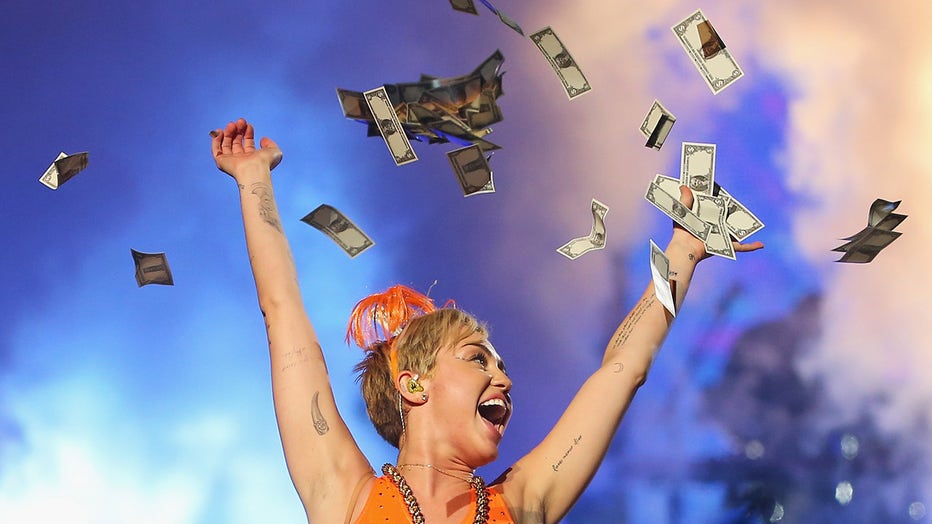Does money buy happiness? A new study suggests it can
Money may actually buy happiness.
A new study conducted by a student at Wharton School at the University of Pennsylvania found a positive association between money and happiness.
Matt Killingsworth, who has been tracking happiness for his large-scale research project, trackyourhappiness.org, sampled more than 33,000 employed U.S. adults who answered questions on a scale called "satisfaction with life."
The research found a consistent positive correlation between an increase in income and an increase in happiness. The data also found that the wealthiest individuals were considerably happier than the high earners in the income group.

Miley Cyrus throws money in the air as she performs at the opening night of her Bangerz Tour in Australia at Rod Laver Arena on October 10, 2014 in Melbourne, Australia. (Credit: Scott Barbour/Getty Images)
In fact, the difference between wealthy and middle-income participants was nearly three times larger than the difference between the middle- and low-income participants, contrary to the idea that middle-income people are close to the peak of the money-happiness curve.
"The magnitude of the difference in happiness between the richest and poorest people was substantial in comparison to the range of the scale," Killingsworth wrote in his study.
The low-income participants reported a life satisfaction just above 4, whereas the two wealthy groups were close to a 6 out of 7.
The study is currently self-published and not peer-reviewed. And, while the results describe the association between money and happiness, Killingsworth noted that the findings do not address the question of causation.
Despite this, the research backs up another study that found that the relationship between a person’s happiness and their income didn’t plateau around $75,000 a year, contrary to often-cited past research on the subject.
The 2021 study found that emotional well-being continued to increase along with income above that threshold. This included feeling better day-to-day and being more satisfied with life overall.
RELATED: Study suggests money can buy happiness — perhaps more than previously thought
The 2021 data also found that there was no dollar value at which money stopped mattering to a person’s well-being.
"Instead, higher incomes were associated with both feeling better moment-to-moment and being more satisfied with life overall," the authors wrote.
A poll published last year also showed that if happiness did have a price tag, the average American thought it could be bought for just over $1 million.
In the survey, more than half (59%) of adults said the cost of happiness was around $1.2 million.
This story was reported from Los Angeles. Kelly Hayes contributed.

